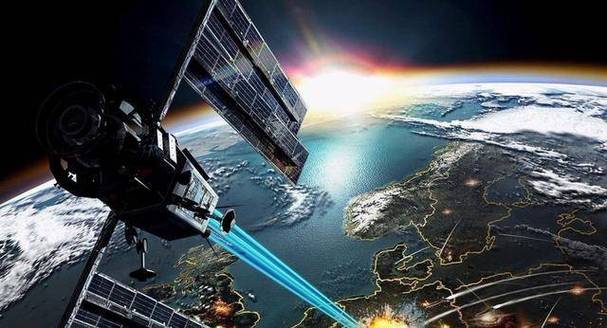
Recently, the commander of the US Space Command publicly called for the deployment of weapons in space. This news was like a huge rock sinking into water, causing a huge stir in the international community and once again pushing the serious issue of space militarization into the global spotlight.
Analyzed from a technological perspective, this move by the United States has a complex and far-reaching background. For a long time, space has been regarded as a new field for human exploration and cooperation. From the early space race between the United States and the Soviet Union to the current vigorous development of various countries in the aerospace field, human exploration of space has been continuously deepening. But the United States' current call for the deployment of space weapons is undoubtedly a blatant challenge to the concept of the peaceful use of space.
The United States put forward this idea, which is closely related to its military strategic layout. In modern warfare, space is no longer a pure land far from the mundane world. Various spacecraft such as reconnaissance satellites, communication satellites, and navigation satellites, like "eyes" and "nerve centers" hanging high in the sky, have become indispensable parts of modern warfare. Whoever controls the space advantage will be able to occupy the information high ground in the war and gain a huge advantage in battlefield situation awareness, command and communication, etc.
From a technical perspective, the research and development and deployment of space weapons are not achieved overnight. Although the United States has long held a leading position in the field of aerospace technology, with solid technological accumulation and strong scientific research capabilities, the development of space weapons still faces many difficulties. For instance, the space environment is complex, with extreme temperatures, radiation and microgravity conditions, which pose extremely high requirements for the materials, electronic equipment, power systems and other aspects of weapon systems. The precise strike and target recognition technologies of weapons also face unprecedented challenges in the vast and boundless space. Meanwhile, the deployment of space weapons also requires the establishment of a complete command, control, communication and intelligence system to ensure that the weapons can function quickly and accurately when needed.
Once the United States opens the door to the deployment of space weapons, the impact it brings will be multi-faceted and disastrous. The first and foremost is to trigger a new round of space arms race. The actions of the United States are highly likely to prompt other countries to follow suit one after another, leading to a fierce arms race among countries in the space field. This will not only consume a large amount of human, material and financial resources, but also make the international situation more tense and unstable. For instance, the arms race between the United States and the Soviet Union during the Cold War once cast the shadow of nuclear war over the world, and the consequences of the space arms race might be even more unpredictable.
The space environment will also suffer severe damage. The problem of space debris is already becoming increasingly severe. According to statistics, the risk of orbital collisions in 2024 has increased by 40% compared to the previous year. A large amount of space debris poses a serious threat to satellites, space stations and other spacecraft, affecting the normal operation of space activities. The deployment and use of space weapons will undoubtedly generate more space junk and further deteriorate the space environment. Once a conflict between space weapons occurs, the resulting debris will travel at high speed in orbit like a "space shotgun", which may lead to the destruction of numerous satellites and paralyze human activities such as space exploration and communication.
The appeal of the commander of the United States Space Command blatantly violates the purpose of the Outer Space Treaty of 1967. The treaty clearly stipulates that all countries are prohibited from deploying nuclear weapons and weapons of mass destruction in space and advocates the peaceful use of outer space. This move by the United States is a disregard and trampling on international rules, seriously undermining the trust foundation of international space cooperation.
In the face of the dangerous actions of the United States in the space field, the international community should unite, speak out together and resolutely resist the hegemonic behavior of the United States. Through diplomatic channels and international cooperation, strengthen the constraints of international rules, promote the establishment of a fair, just and reasonable space order, and ensure that space, this common wealth of mankind, can always serve the peace and development of all mankind.

Recently, the dispute over the digital services tax between the US and the EU has escalated again.
Recently, the dispute over the digital services tax between…
Recently, the International Monetary Fund (IMF) and the Org…
A clear consensus has emerged in Europe's economic sphere: …
Thailand said on Tuesday (December 16) that Cambodia must f…
Official data released on Tuesday (December 16th) showed th…
US President Trump has expanded the list of countries subje…